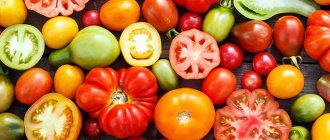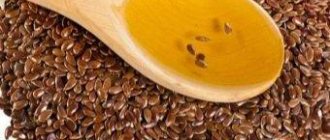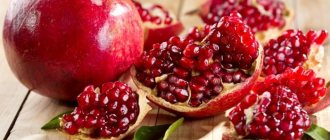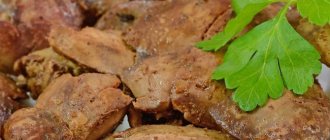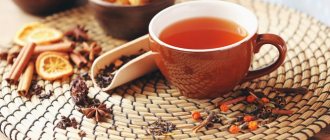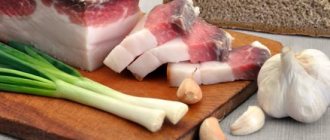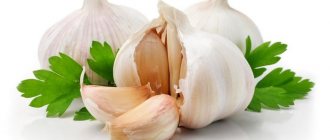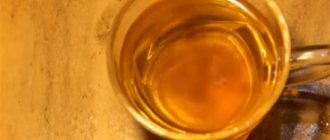Despite the recommendations of some doctors, nursing mothers do not have to follow a strict diet. A woman’s diet during the lactation period should be the same as the diet of a person leading a healthy lifestyle. Moreover, refusing some foods can undermine the health of a nursing mother. But there are still several food groups whose consumption should be reduced or completely eliminated.
Feeding during breastfeeding: 5 key points
First of all, it is worth considering that while the baby consumes breast milk, and it is his only available source of nutrition, the nursing mother has double responsibility. During the lactation period, a woman should seriously concern herself with her own menu, because both the quantity and quality of mother’s milk depend on it and the specific feeding regimen. Here are five basic principles:
- All products must be fresh;
- They must be processed correctly;
- Don’t forget to drink the required amount of fluid;
- Avoid tasty but prohibited foods;
- Constantly monitor the reaction of your body and your baby’s body.
Let's look at each of them separately.
Freshness of products
Breastfeeding presupposes that the mother consumes good quality food, which means only the freshest products, if possible natural, without preservatives. Yesterday's milk or kefir is already beyond what is permitted. Leave anything that has been in the refrigerator for more than 12 hours in the care of other family members.
Proper processing
For a mother who practices breastfeeding, thermally processed foods should predominate in her diet. In the first month after childbirth, cooking is preferable; you can also bake meat and vegetables. Raw foods can cause colic and gas in your baby, so they should be avoided. You should also avoid canned food, homemade pickles, dishes with marinade and overly spicy foods.
More fluid
While a mother is breastfeeding her baby, she should drink more fluids than usual. The daily norm for heated water is 2-2.5 liters. This includes soups, juices, fermented milk drinks, milk and plain water. Half an hour before feeding, it is recommended to drink a glass of warm drink: this will replenish fluid reserves in the body and have a beneficial effect on lactation.
No to allergens!
In the first three weeks of life, it is necessary to exclude from the diet everything that can cause allergies in the baby. Prohibited products: citrus fruits, chocolate, honey, as well as dairy products (including condensed milk, which is mistakenly considered a product that increases lactation).
Observing the reaction
You need to add new products to the menu gradually, in small portions. It's best to eat a small piece of a new fruit or vegetable in the morning and carefully monitor your baby's well-being throughout the day. In order not to get confused later, you can keep a food diary in which you note the food eaten and the reaction of the baby’s body.
Important! If the child is healthy and accepts your nutritional innovations well, then you can gradually return to the usual prenatal diet by the age of three months.
Which kefir to choose
Considering the variety of dairy products, when choosing kefir you need to adhere to certain criteria:
- Date of manufacture – when breastfeeding, it is better to drink one-day kefir. Consumption is allowed for 2 days; on the third, the concentration of carbon dioxide and ethanol reaches its maximum values.
- The packaging is undamaged and not bloated. It is better not to choose a product at a discount (due to defects) during the war. Violation of vacuum packaging provokes the entry of pathogenic microbes into the drink, for which kefir starter is the best breeding ground.
- If the packaging indicates a long term, there is a high probability of chemicals being used in production.
Expert opinion
Sokolova L. S.
Pediatrician of the highest category
If the presence of lactobacilli is indicated in the composition of kefir, you need to choose a product with a 3-5-day shelf life: such microorganisms do not live longer.
Foods for breastfeeding by month
It is necessary for a nursing mother to maintain a certain diet during lactation from the first day of the baby’s life. The nutrition chart for a nursing mother by month will tell you when you can introduce a new dish to the menu. The list of products allowed during breastfeeding is compiled based on pediatricians’ observations of the effect of each of them on the child’s body.
| Child's age | Recommended Products | Limited products (2-3 times a week) | Not recommended products |
| 1 week of life | Porridge (buckwheat, oatmeal), boiled beef, soups without frying (vegetable broth), baked apples, dried bread, green apples | Fermented milk drinks (kefir, yogurt), boiled potatoes, cottage cheese, mild cheese | Fresh yeast bread, milk, broths, coffee, fatty fish, citrus fruits, chocolate and chocolate-coated products, sausages, canned food, seafood |
| 1 month | Boiled poultry (turkey, chicken), chicken eggs, biscuits | Bananas, bran, green vegetables, fruit drinks | Premium bread, confectionery baked goods, citrus fruits, fatty fish, spices, store-bought sauces, fast food, carbonated drinks |
| 2 months | Soups with weak poultry/fish broth, boiled fish, fresh vegetable salads (with the exception of brightly colored foods) | Millet porridge, rice, homemade marshmallow, berries/fruits (not red varieties) | Filled pastries, white bread, citrus fruits, cakes, pastries, coffee, cocoa, chocolate, cream, lemonade |
| 3 months | Boiled/baked lean pork, steam cutlets, sour cream, cottage cheese | Vinaigrette, homemade apple/pear jam, compotes | Coffee, cocoa, citrus fruits, chocolate, baked goods, fatty fish, seafood |
| 4+ months | Gradual return to a complete and usual prenatal diet (excluding allergenic and harmful foods) | Fruit salads, casseroles, chicken offal (liver, boiled gizzards) | Sausages, canned foods, fast food, industrial sauces, seafood, chocolate, carbonated drinks |
With proper nutrition of the mother, the natural product contains literally everything that is necessary for the proper growth and development of the baby. Mother's milk undergoes changes every day along with the changing needs of the baby:
- At first, the baby will receive colostrum from the breast, which contains a lot of protein and protective substances, but still little fat. This product is the easiest for a newborn’s digestive system to cope with.
- Approximately 5 days after birth, the mother’s mammary glands begin to produce “transitional” milk. Its amount will be significantly greater than colostrum. There is less protein in this milk, but the amount of fat increases.
- From the 14th day, “mature” milk appears in the mother’s breast. Its composition depends on the diet of the nursing mother, as well as on the frequency of application and even on the time of day. The concentration of nutrients in milk is high, but by 4 months of the child’s life it will gradually decrease, and by 6 months their quantity will no longer be enough regardless of the mother’s nutrition, so the time will come to introduce the first complementary foods.
How to eat properly while breastfeeding (video):
How does maternal nutrition affect the composition of breast milk?
If during pregnancy women are forced to exclude many foods from their menu, then during feeding mothers are required to only minimally restrict their diet. Because during breastfeeding, some of the harmful substances are destroyed in the digestive tract, some are excluded from the composition of milk already at the level of the mammary glands. Some medications, alcohol and nicotine pass directly into the baby's body from breast milk. Therefore, nursing mothers are strictly prohibited from smoking, drinking alcoholic beverages and taking medications that are contraindicated during lactation without the permission of the attending physician.
The mother's diet directly affects the composition of breast milk, and if the diet is inadequate, the quality of the milk will suffer, and this may also affect its quantity.
Due to strict restrictions, the body of a nursing mother is forced to use up protein and fat reserves in order to produce milk that is most suitable for feeding the child. In addition, due to hormonal changes, women in the postpartum period are susceptible to various diseases, and poor nutrition can provoke an allergic reaction and disruption of the intestinal microflora. And the illness of a nursing mother may well affect the quality of milk, so food restrictions should be reasonable.
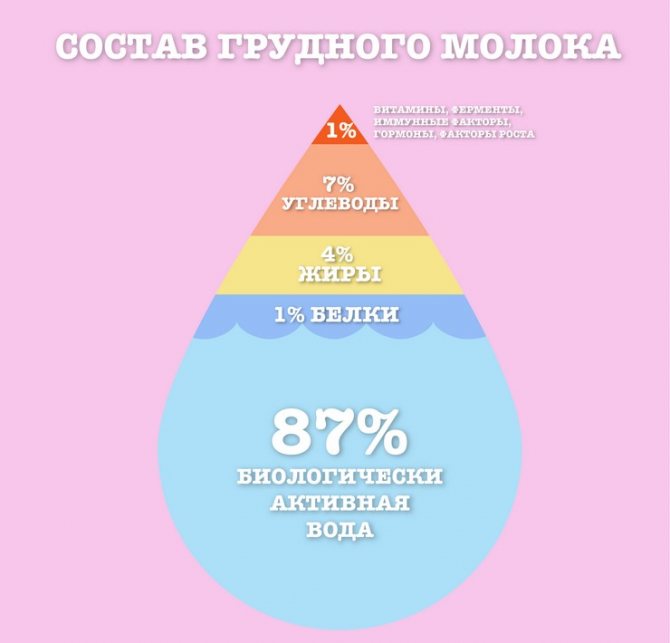
We create a menu: healthy and unhealthy foods for nursing mothers
At first glance, it may seem that it is very difficult to establish nutrition for a nursing mother; many recommendations and rules must be followed. But in fact, everything is very simple - a woman should eat a varied diet, and she should try to ensure that her daily menu includes all food groups. A balanced breakfast, lunch and dinner will meet the needs of both the mother and the breastfed baby.
Meat
This product should be present in the diet of a nursing mother every day, as it is the main source of animal proteins and iron. It is best to cook meat by boiling or stewing. Turkey or chicken should be preferred; beef and lean pork are also suitable. Daily portion – at least 170 g.
Fish
Fish can be included in your breastfeeding diet in the second month after birth. It is better for a nursing mother to eat it boiled, baked, or steamed. You should choose low-fat fish - carp, cod, hake or pike perch. The daily norm is about 70 g and no more than 2-3 times a week.
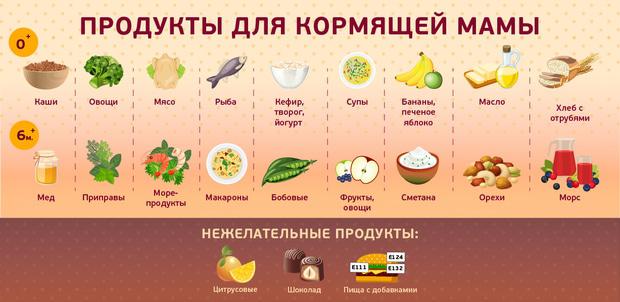
Vegetables and fruits
This is the most important point in nutrition during lactation. Fresh vegetables and fruits contain plant fibers that help intestinal function and prevent constipation in a nursing mother. They are also rich in vitamins and minerals, so they should be included in the menu daily at the rate of 500 g of vegetables (boiled, stewed) and 300 g of thoroughly washed fruits.
On a note! If possible, you should avoid red and orange fruits; they can cause allergies in your baby. These include citrus fruits, strawberries, carrots and red bell peppers.
Milk
It is not recommended to drink whole milk as an independent product - it can cause increased gas formation in the baby. It is better to use it as an additive to main dishes, for example, cook morning porridge with milk or add it to vegetable sauce when stewing. In the third month after childbirth, you can add boiled milk to tea to stimulate lactation.
Dairy products
Cheese and cottage cheese contain a lot of protein and calcium, which are necessary for the proper and complete development of the baby. That is why they are included in the list of products for mandatory consumption during breastfeeding. Moreover, to satisfy the daily requirement during lactation, very little is required: cheese - 15 g, cottage cheese - 50 g. Kefir, natural yogurt without additives, and yogurt are also well absorbed. They have a beneficial effect on the intestinal microflora, do not cause allergies, and create a pleasant feeling of satiety. These drinks can be consumed 1 glass per day.
Bread and cereals
At first after childbirth, cereal dishes will be the main diet for a nursing mother. Cereals are rich in dietary fiber, microelements and vitamins; they can be purchased for future use. With bread, everything is a little different - a white wheat product can cause gas in the baby. You need to choose rye bread made from wholemeal flour to feed your mother.
Oil
During lactation, it is allowed to consume both butter and vegetable oil in moderate quantities. You can lubricate bread with butter or add a piece to porridge. Frying is not recommended, so vegetable oil can be used as a dressing for vegetables in a salad.
The table will help you navigate in choosing the right products to create an individual nutrition plan for a nursing mother.
| Product | Possible with breastfeeding | Possible, but no more than 1-2 times a week | Not allowed during breastfeeding |
| Vegetables | Boiled potatoes, zucchini, broccoli, spinach, squash, lettuce | Cucumbers, eggplants, carrots, beets, pumpkin, cauliflower, turnips | Tomatoes, red and orange bell peppers, onions, garlic, sorrel, radishes, rutabaga, radish |
| Fruits/berries | Green sour apples (fresh, baked), hard pears | Peaches, bananas, apricots | All citrus fruits, grapes, strawberries, raspberries, persimmons, avocado, kiwi |
| Cereals | Oatmeal, rice, buckwheat | Wheat, semolina, corn | Legumes |
| Meat | Boiled or baked chicken fillet, turkey fillet, rabbit meat, lean beef and pork | Chicken liver | Sausages, wieners, sausage, ham, lard, smoked meats, canned meat, pates |
| Fish/seafood | – | Boiled lean fish (hake, pike perch, cod) | All types of seafood (shrimp, squid, mussels, etc.), caviar, fatty fish, Japanese dishes (rolls, sushi) |
| Milk and dairy products | Low-fat cottage cheese, kefir, natural yogurt, yogurt, bifidoc, acidophilus | Cheese, whole milk (in porridge), low-fat sour cream (15%) | Whole milk as a drink, cream, yoghurts with fillings, glazed curd cheeses |
| Bread/pastry | Second-grade rye bread, bran bread, biscuits, dryers | Premium bread, rolls without filling, sweets without cream and glaze | Cream pies, filled pies, cakes |
| Beverages | Boiled water, weak tea (black, green, white), dried fruit compote, infant formula | Homemade jelly (not powder), a decoction of rose hips or herbs for lactation. | Strong meat and fish broths, coffee, cocoa, carbonated drinks, alcohol |
| Other | Boiled chicken eggs, olive and sunflower oil | Pasta, spices (salt, sugar) | Honey, nuts, chocolate, mushrooms, fast food (including crackers, chips), canned food, industrial sauces (ketchup, mayonnaise, mustard), hot herbs and spices |
The nutrition of a nursing mother depends on:
- quantity, quality and taste of milk produced;
- restoration of the maternal body after pregnancy and childbirth;
- resistance to infections and viruses;
- formation of correct eating habits in the baby.
On a note! The caloric content of food during the lactation period for a woman should be 500 kcal higher than in the prenatal period. It should be achieved through a full daily menu, but in no case through bakery and confectionery products (baked goods, sweets), as well as other foods from the forbidden list that are rich in fat.
Breastfeeding diet. Video tips and menus for nursing mothers:
What a nursing mother should not eat
First, it is worth clarifying the list of prohibited foods when breastfeeding, so that such ingredients are completely excluded from the nursing diet. First of all, this:
- products containing alcohol . Constant consumption of alcoholic beverages leads to a decrease in lactation, since the effect on a woman’s nervous system impairs the production of the necessary prolactin, a hormone on which the flow of milk directly depends. Penetrating into the baby’s body, harmful particles of alcoholic beverages can cause colic, rapid heartbeat, and also lead to disruption of the child’s sleep and nervous overexcitation;
— milk and too sweet varieties of chocolate, baked goods and other sweets . First of all, the high sugar content in such products will negatively affect the figure of a young mother. In addition, the baby’s digestion is not yet developed enough to digest simple carbohydrates from these foods. As a result, such relaxations in the mother’s diet will lead to digestive system upset, bloating or colic. The development of diathesis or an allergy to sweets is also possible if the mother eats a large amount of sweet food;
- coffee, tea and drinks containing caffeine . For the first few months, such drinking is contraindicated during lactation. Then, after six months from the baby’s birth, you can gradually introduce them into the menu, using boiled coffee and loose tea, not from bags. It is undesirable to drink such drinks because of the same unstable functioning of the baby’s gastrointestinal tract - his body is simply not ready to accept and eliminate caffeine. And as a result of the cumulative effect, it can lead to serious consequences for a small child;
— semi-finished and canned foods , as well as any products containing dyes, thickeners and stabilizers. In addition to the fact that the true composition of such dishes and the quality of the ingredients are unknown, the combination of protein and carbohydrates, for example in dumplings, is harmful to the baby. Such products lead to allergic reactions and increased gas formation;
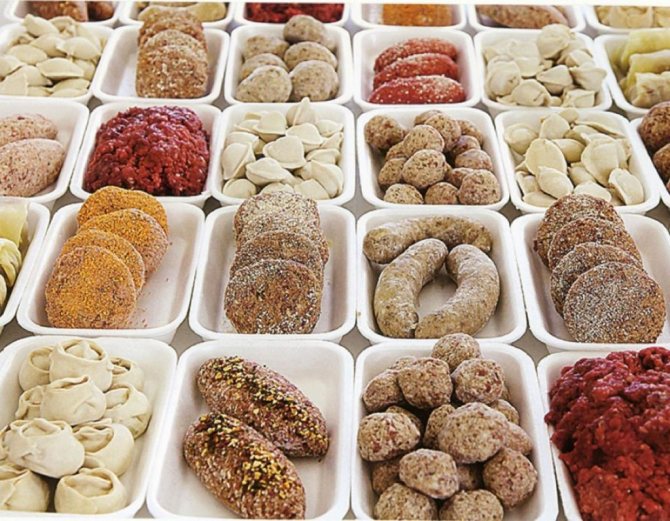
Store-bought semi-finished products, canned food, carbonated drinks are taboo for a nursing mother due to their dubious composition and quality.
- soda . The large amount of liquid that a nursing mother should drink does not mean that she needs to drink completely harmful drinks. They have no benefit, neither for the mother nor for the baby, but they will cause considerable harm to children’s health. In a newborn baby, carbonated drinks will cause abdominal pain, increased flatulence and intestinal upset;
- onions, garlic, red pepper and other pronounced seasonings . Such food additives can change the taste of mother’s milk; in exceptional cases, babies even refuse their mother’s breast;
- smoked lard, fatty sausages and fish . Such food does not have any beneficial properties - smoked products are strong allergens, lead to dehydration of the body and can cause poisoning. In a baby, such ingredients will aggravate natural physiological colic, lead to the accumulation of gases and stool disturbances;
- legume fruits . In addition to substances that increase the bitterness of breast milk, legumes can cause colic and digestive system disorders in the baby;
- black varieties of bread , which can cause heartburn in the mother and increased gas formation in the newborn;

Click here
— among vegetables, it is not recommended to eat sauerkraut and pickled cabbage, radishes, radishes . The already known problem with a change in the taste of breast milk when the mother consumes such products is accompanied by possible allergic reactions. Also, these varieties of vegetables are prohibited from being eaten by mothers who have problems with the gallbladder, liver or pancreas. By irritating the mucous membrane with their active substances, such bitter vegetables lead to bloating;
- citrus fruits and fruits from exotic countries . Oranges, pineapples, passion fruit often cause rashes and redness on the skin in adults, but a newborn baby especially does not need them. The necessary enzymes for processing such products are formed in infants only by six months, so a nursing mother should eat such ingredients as late as possible.
In addition, in the first three months from the date of birth of the baby, mothers are not allowed to eat: seafood, dairy products with a high percentage of fat, fatty fermented milk products, including cheeses (spicy, salty or with additives). Sauces and marinades, nuts and honey - all these ingredients should be tried with extreme caution and only after the baby has become a little stronger.
Approximate diet for a mother for a week during lactation
Planning a menu for a new mother can seem like a real challenge - it seems easier to switch to bread and water than to follow all the advice. In order not to get confused about what a nursing mother can eat and what she cannot, we give as an example the weekly diet of those dishes that are allowed during breastfeeding.
| Day of the week | Eating | ||||
| Breakfast | Lunch | Dinner | Afternoon snack | Dinner | |
| Monday | Sandwich with butter and cheese. Weak black tea | Baked egg white omelette. Rose hip decoction | Chicken fillet soup. Zucchini baked with minced meat and rice. Compote | Baked apple, kefir 1% | Steam cutlet, vermicelli casserole with sour cream. Kefir 1% |
| Tuesday | Vermicelli and cottage cheese casserole. Freshly brewed dried fruit compote | Boiled chicken egg, biscuits, tea | Buckwheat soup. Steam cutlet, beet salad. Tea | A glass of plain yogurt, a banana | Boiled cauliflower. Fish stewed in sour cream sauce. Tea |
| Wednesday | Baked apple, weak sweetened tea | Rice pudding, tea | Vegetable puree soup made from potatoes, cauliflower and carrots. Schnitzel, boiled buckwheat. Compote | Cheesecakes baked with low-fat sour cream, tea | Boiled chicken liver, buckwheat porridge. Rose hip decoction |
| Thursday | A cheese sandwich. Dried fruits compote | Milk porridge, compote | Soup in weak fish broth with potatoes. Stewed turkey fillet with vegetables. Rose hip decoction | Cottage cheese with sour cream, tea | Carrot casserole. Steamed chicken cutlet. Kefir 1% |
| Friday | Muesli with natural yoghurt, tea | Oatmeal with apple | Vegetable puree soup. Fresh carrot salad with apple, schnitzel. Dried fruits compote | Baked apple, bifidok | Cottage cheese casserole with low-fat sour cream. Weak tea |
| Saturday | Oatmeal with apple/pear, tea | Fruit salad with natural yogurt | Pumpkin puree soup. Baked meat hedgehogs. Compote | Rice pudding, tea | Vegetable stew, boiled chicken breast. Tea |
| Sunday | Dry bread, apple pastille, weak tea | Cottage cheese casserole with low-fat sour cream | Soup with vermicelli and vegetables. Boiled potatoes with steam cutlet. Rose hip decoction | Biscuits, kefir 1% | Beef stewed with vegetables. Leaf salad. Kefir 1% |
You can take the menu as a basis, varying the recipes at your discretion. Nothing complicated, the main thing is to adhere to the “do no harm” rule - a minimum of spices, without frying or flavoring food with sauces such as mayonnaise. For those who adhere to proper nutrition, there will be nothing new here at all. The dishes are easy to prepare and will not take much time, which is important for the mother of a baby.
Lactation assistants: balanced nutrition for mothers
The production of milk in the breast is a process, although provided for by nature, but in essence it is very complex, and depends on many factors, including psychological ones. There are times when a nursing mother may feel the need to improve lactation. You can cope with the problem of lack of milk: products created specifically for breastfeeding mothers will come to the rescue.
Milk formulas
Powdered milk formulas for mothers are a real salvation when there is insufficient milk production. They are diluted with warm water and taken as an everyday drink, like a cocktail. With regular consumption of the drink (at least 2 glasses a day), milk in the breast increases, moreover, it is enriched with polyunsaturated fatty acids, dietary fiber, vitamins and minerals included in the mixture.
Herbal teas
Special teas for women during the lactation period contain herbs that are allowed in baby food. This is important, because when breastfeeding, everything a mother consumes affects her baby. Such teas include both single components and entire complexes of herbs: lemon balm, cumin, anise, fennel, hibiscus, nettle, verbena and others. Decoctions of these plants increase lactation, help the digestive process of mother and child, help prevent colic and reduce the manifestations of flatulence in babies. Drinking herbal teas has a beneficial effect on the metabolism and emotionality of a nursing mother.
Juices for nursing mothers
Pleasant to the taste, juices for nursing women are enriched with a whole vitamin complex: vitamins C, PP, E, pantothenic and folic acid, biotin and even calcium. Small packages allow you to take these drinks with you and drink them before feeding your baby, even outside the home. Juice for nursing mothers does not contain dyes or preservatives, so it will not cause allergies even in the smallest baby, and the special juice improves lactation and adds variety to the menu.
Vitamin puddings
During the lactation period, sometimes you want to treat yourself to dessert, but almost all delicious sweets are prohibited. But there is a way out! On sale you can find puddings for pregnant and nursing mothers. Thanks to the vitamins, prebiotics and minerals they contain, a nursing mother improves digestion after childbirth and reduces the tendency to constipation. Prebiotics also have a beneficial effect on the immune system.
Breastfeeding nutrition - the experience of a young mother (video):
